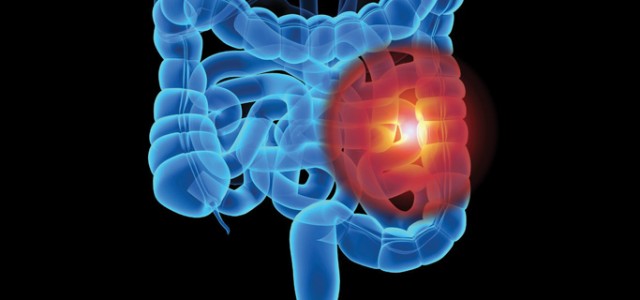Traditionally, the treatment aim in patients with Inflammatory Bowel Disease (IBD) has been clinical remission evaluated by clinical indices, especially among patients with symptoms of predominantly inflammatory origin1. However, the correlation between such indices and the degree of inflammation has been questioned and Saverymuttu et al2 showed low correlation between the Crohn Disease Activity Index and the degree of inflammation.
Focus has shifted to the important relationship between mucosal healing and prognosis. Mucosal healing has been associated with sustained clinical remission, together with reduced rates of hospitalisation and surgical resection. Therefore, the optimal goal for treatment of IBD is mucosal healing. Evaluating mucosal healing in all IBD patients using endoscopy and histology would mean a huge workload for the gastroenterologists, great expense to the NHS and additional distress to patients. As a result, sensitive markers of mucosal healing are urgently required.
Various studies have shown that patients in clinical remission with low concentration of faecal calprotectin had a much better prognosis than patients with high concentrations. Tibble et al3 have shown only 13% of patients with low calprotectin risk relapse during the following year, versus 85% with a high concentration. They also demonstrated that calprotectin predicted clinical relapse with a 90% sensitivity and an 83% specificity.
There are numerous studies showing the good correlation between IBD disease activity and faecal calprotectin concentrations. Falling to within the reference interval means that mucosal healing has probably been achieved. If concentrations are still high, a change in treatment may be needed.
It has already been proven that the use of faecal calprotectin in the differentiation of patients with IBD and IBS sav es NHS funds. However, these economic benefits are probably underestimated. This is because using calprotectin for monitoring treatment and prediction of relapse reduces the number of endoscopy procedures, bed days and surgeries, which all contribute to substantial cost savings.
Alpha Laboratories offers the widest range of test formats for the measurement of faecal calprotectin. If you want to perform the t est in primary care, the gastroenterology clinic or in the hospital laboratory, there is a system/kit to suit your needs.
This article was published previously in Alpha Laboratories’ Leading Edge Newsletter – Summer 2012.
Click here to read more diagnostic articles published in Leading Edge
References:
1. (Roseth et al , Scand J Gastroenterol 2004:39:1017-20)
2. Saverymuttu et al
3. Tibble et al

